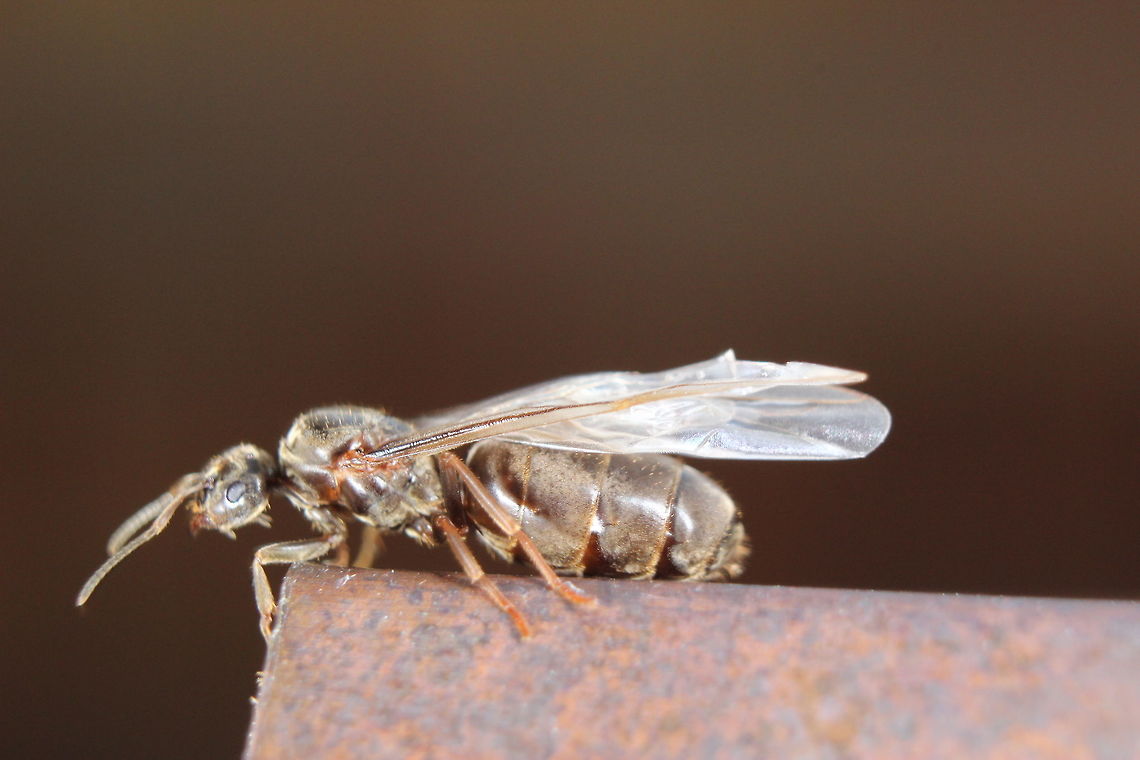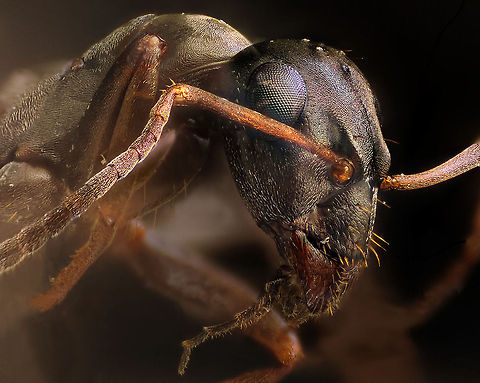
New Lasius Niger Queen
What an exciting evening - after very heavy rain yesterday and warm/humid weather today, it would appear that conditions were perfect for the nuptial flights! Hundreds of Lasius Niger males and newly impregnated queens landed in my garden. It was nice to sit out having a BBQ and watching them all fly round and land, looking for their new nesting site so they can start their own colony. Really pleased I got to witness it :)

The black garden ant is a formicine ant, the type species of the subgenus ''Lasius'', found all over Europe and in some parts of North America and Asia. It is monogynous, meaning colonies have a single queen.

comments (2)